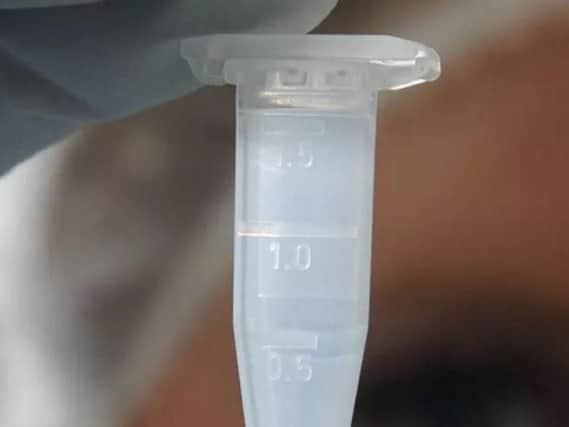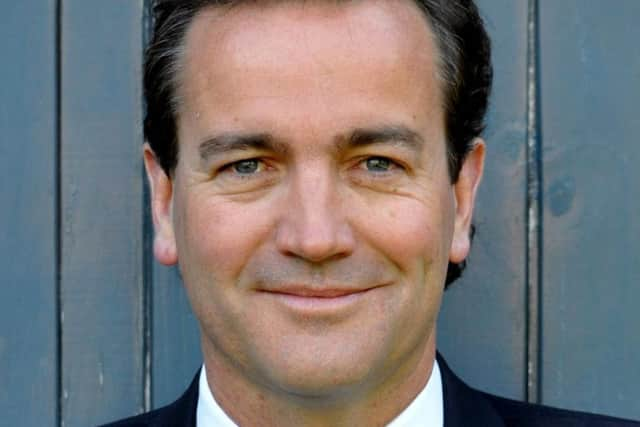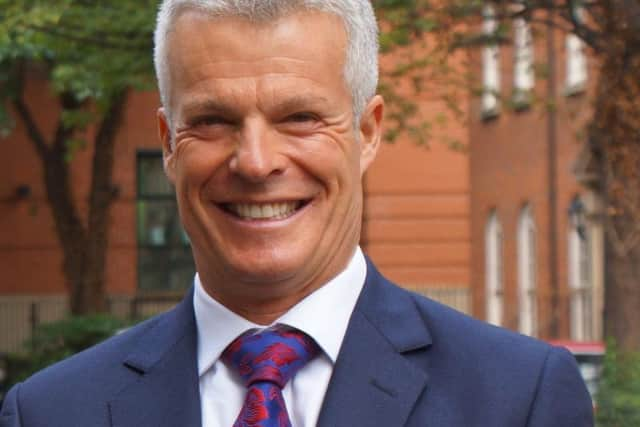Exclusive: Secret guidance casts fresh doubt on safety of thousands of criminal convictions linked to forensics scandal


More than 10,000 criminal cases, largely relating to drug-driving offences and including 2,000 in Yorkshire, had already been put in question by an investigation into alleged data manipulation of results by a pair of scientists at a company called Randox Testing Services, which worked for all of Yorkshire’s police forces and dozens of others around the country.
Of the 10,000 cases affected, around 7,500 involve drug-driving, with approximately 5,000 already resulting in convictions. Retests of the affected results have been ordered and may take three years to complete.
Advertisement
Hide AdAdvertisement
Hide Ad

But previously-secret information released under Freedom of Information laws has raised new questions about how Randox followed draft industry guidance on conducting drug-driving tests relating to a new motoring offence introduced in March 2015.
The offence involving being in charge of a motor vehicle with illegal concentration levels of drugs in a driver's system was introduced by the Government to tackle instances where drug drivers had escaped prosecution due to insufficient evidence to prove their driving had been impaired.
While other laboratories took two separate samples from a vial of driver’s blood to get an aggregate result, Randox tested single extractions until it changed to the same process used by others "to adjust to wider practice by Forensic Science providers within the UK” in May 2016. The change came after concerns were raised by the National Police Chiefs Council that Randox’s method could lead to “increased challenges in court”.
Advertisement
Hide AdAdvertisement
Hide AdAfter two specialist motoring lawyers suggested in December that the method used by Randox meant the readings may be viewed as unreliable and convictions may have to be set aside as a result, Randox said in response that the single extraction method had been fully accredited, it was “fully satisfied” with its use and the change in process did not reflect on the appropriateness of the way it had originally conducted the work.


But The Yorkshire Post has now seen draft guidance by the Forensic Science Regulator in March and September 2015 on dealing with drug-driving analysis work.
The draft guidance, for which no final version has yet been issued, states that labs must undertake analyses “in replicate” and readings should should be "the mean of the replicate measurements" - the average of two results.
Home Office Minister Nick Hurd told Parliament last month there was “nothing in the specification, standards or professional guidance at the time which explicitly precluded their [Randox’s] approach to extraction”. It is understood the Home Office is maintaining that position on the grounds the guidance does not specifically mention extraction needing to be done more than once.
Advertisement
Hide AdAdvertisement
Hide AdBut the guidance also states that all labs should use the same process to help ensure it is “beyond reasonable doubt” that a driver was above the legal limit for a particular drug.


It says: “Without a standard approach established centrally there could be variability in how measurement uncertainty is accounted for between laboratories, leading to the potential for different outcomes from analysis of the same sample by different laboratories."
Motoring lawyer Alison Ashworth said she had been requesting to see guidance since 2015 from organisations including the Home Office but had been “denied access to it”.
She said the publication of the evidence raises new concerns about the quality of evidence used to secure convictions in thousands of cases.
Advertisement
Hide AdAdvertisement
Hide Ad“Had this document come to light when we originally requested it, multiple miscarriages of justice could have been avoided,” she said.


Laywer Nick Freeman, who is known as ‘Mr Loophole’ for his work in clearing stars like David Beckham of driving offences, recently wrote to Mr Hurd to express his concerns about the process used by Randox.
His letter cited guidance issued by the UK and Ireland Association of Forensic Toxicologists in 2010 which states “replicate extraction, at least in duplicate, is recommended” to validate forensic tests.
Mr Freeman, who is calling for a public inquiry into the scandal, said he is yet to receive a response from the Home Office.
Advertisement
Hide AdAdvertisement
Hide AdA number of prosecutions have been dropped and over a dozen convictions found to be unsafe in the small number of retested cases involving Yorkshire police forces so far.
Shadow Policing and Crime Minister Louise Haigh today called for forensic regulators to “urgently” be given statutory powers to enforce standards within the industry.
Randox stressed the guidance had only been a draft version and said it stood by its statement from December that the work had been conducted appropriately.